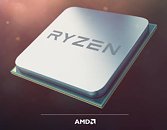- Joined
- Aug 20, 2007
- Messages
- 22,161 (3.43/day)
- Location
- Olympia, WA
| System Name | Pioneer |
|---|---|
| Processor | Ryzen 9 9950X |
| Motherboard | MSI MAG X670E Tomahawk Wifi |
| Cooling | Noctua NH-D15 + A whole lotta Sunon, Phanteks and Corsair Maglev blower fans... |
| Memory | 128GB (4x 32GB) G.Skill Flare X5 @ DDR5-4000(Running 1:1:1 w/FCLK) |
| Video Card(s) | XFX RX 7900 XTX Speedster Merc 310 |
| Storage | Intel 5800X Optane 800GB boot, +2x Crucial P5 Plus 2TB PCIe 4.0 NVMe SSDs, 1x 2TB Seagate Exos 3.5" |
| Display(s) | 55" LG 55" B9 OLED 4K Display |
| Case | Thermaltake Core X31 |
| Audio Device(s) | TOSLINK->Schiit Modi MB->Asgard 2 DAC Amp->AKG Pro K712 Headphones or HDMI->B9 OLED |
| Power Supply | FSP Hydro Ti Pro 850W |
| Mouse | Logitech G305 Lightspeed Wireless |
| Keyboard | WASD Code v3 with Cherry Green keyswitches + PBT DS keycaps |
| Software | Gentoo Linux x64, other office machines run Windows 11 Enterprise |
So, it's not just Windows that will be pulling the "you need the latest version" card when it comes to Ryzen CPU support. Apparently, Linux will need kernel version 4.9.10 or better to enable a lot of features, SMT included. If you really want good support, the "newer the better" is generally the way to go.
Operating below that version won't necessarily stop Ryzen from functioning as a CPU, but several notable features, most notably SMT, will be completely "broken" according to the article at Phronix.
Phronix notes that the fix landed in early February. It notes in the commit message:
So there it is, for you techno-wizards. Apparently, microcode actually is relevant to support features, and Microsoft's claims have some degree of merit.


View at TechPowerUp Main Site
Operating below that version won't necessarily stop Ryzen from functioning as a CPU, but several notable features, most notably SMT, will be completely "broken" according to the article at Phronix.
Phronix notes that the fix landed in early February. It notes in the commit message:
After: a33d331761bc ("x86/CPU/AMD: Fix Bulldozer topology") our SMT scheduling topology for Fam17h systems is broken, because the ThreadId is included in the ApicId when SMT is enabled. So, without further decoding cpu_core_id is unique for each thread rather than the same for threads on the same core. This didn't affect systems with SMT disabled. Make cpu_core_id be what it is defined to be.
So there it is, for you techno-wizards. Apparently, microcode actually is relevant to support features, and Microsoft's claims have some degree of merit.


View at TechPowerUp Main Site






